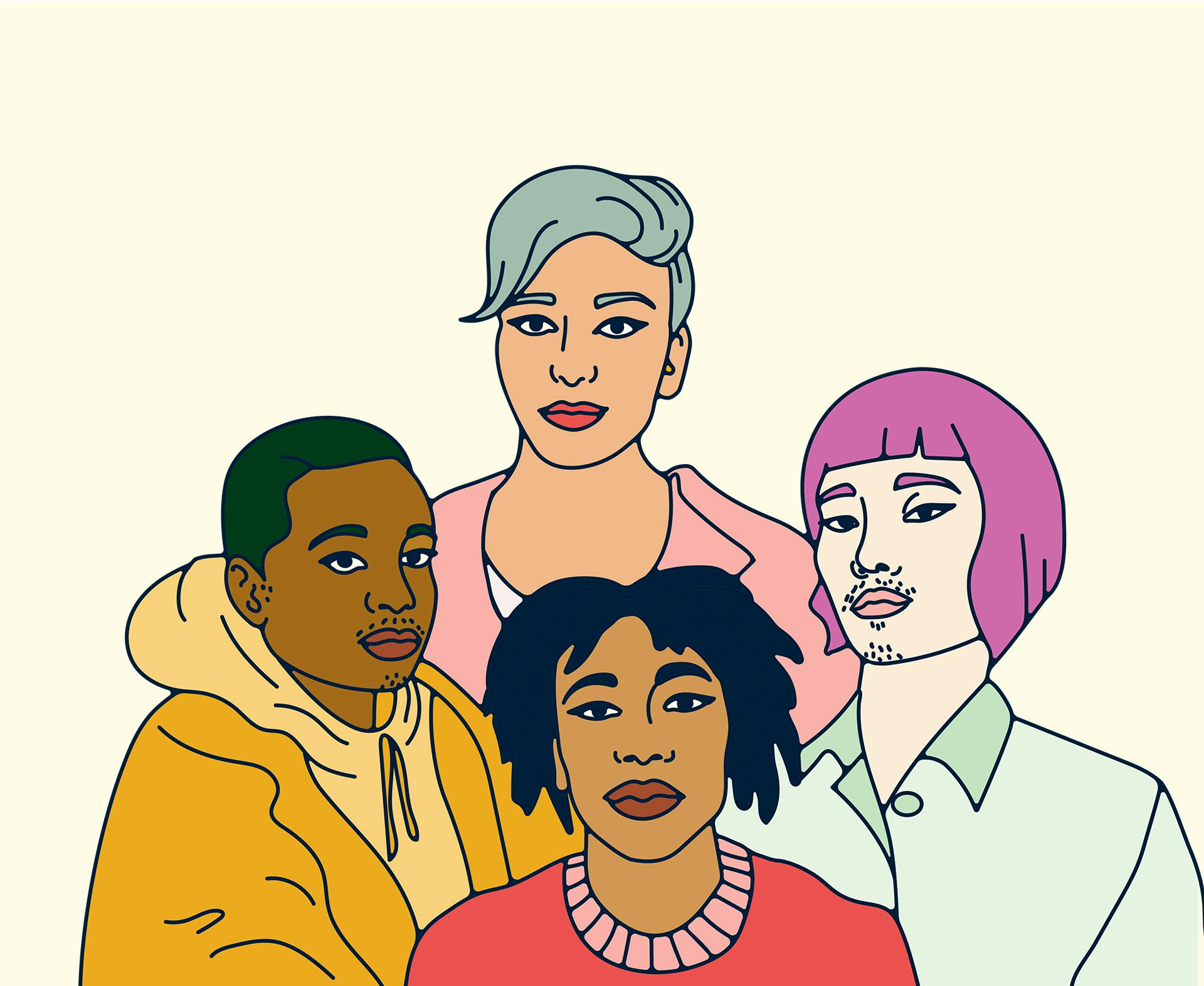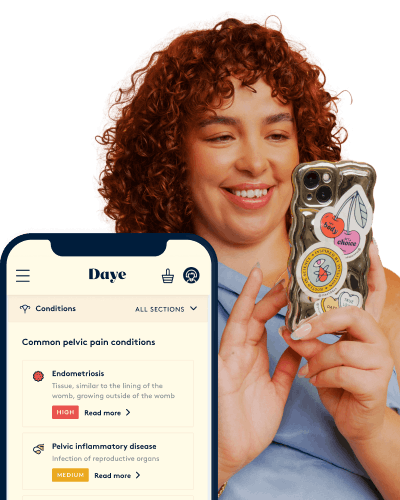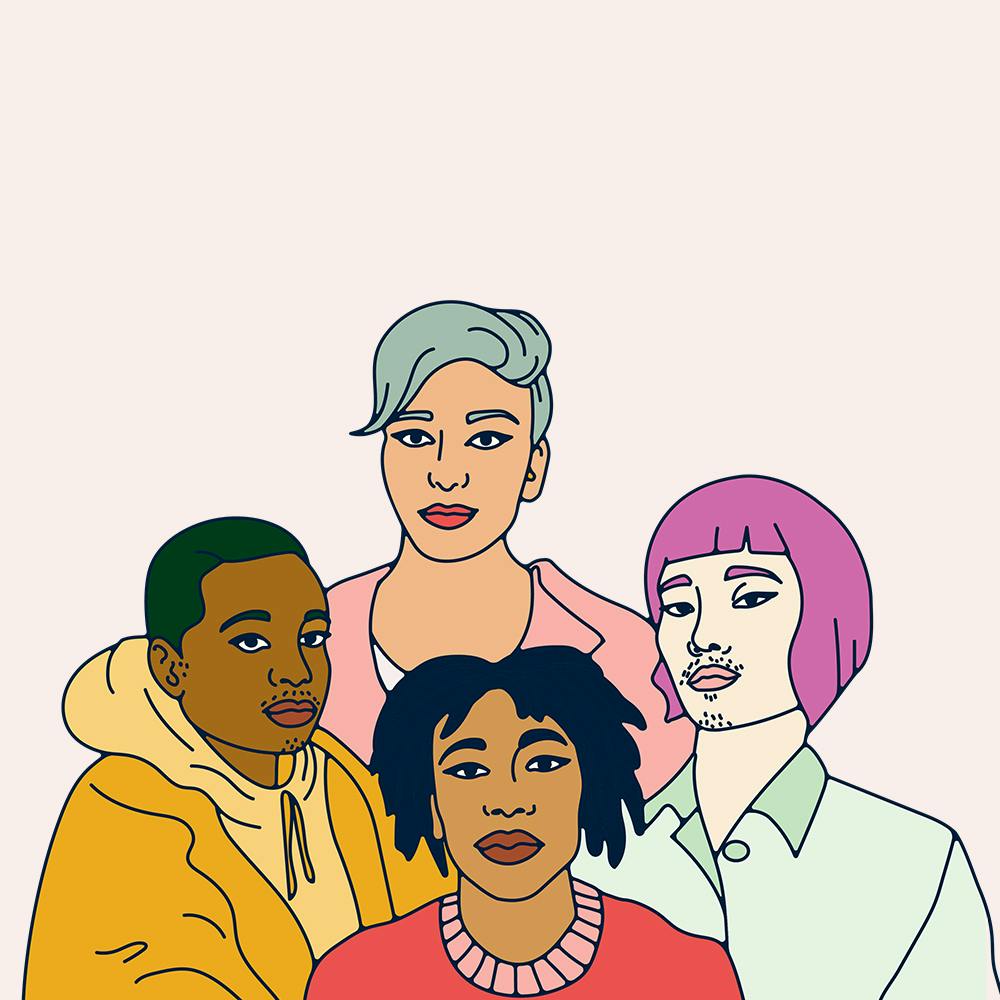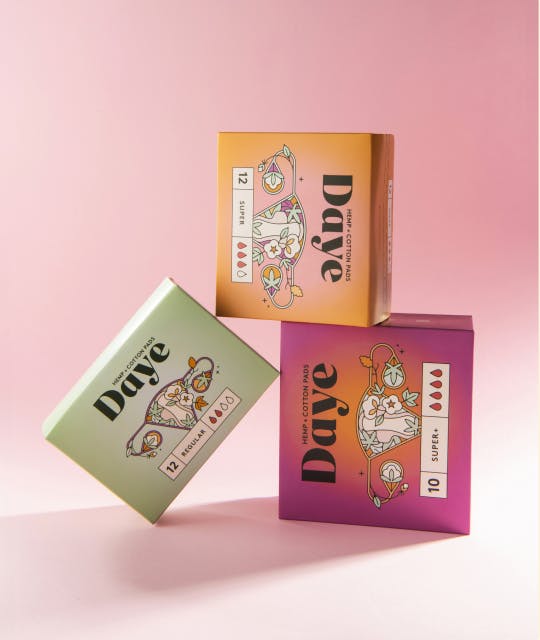Written by Quinn Rhodes
Illustrated by Sabrina Bezerra
Periods are steeped in taboo, and even though in the last few years we’ve started talking about periods with less shame, our empowering, feminist conversations don’t include everyone. We’re leaving out the people with vaginas who aren’t women.
As a genderfluid person, the majority of my gender dysphoria comes from the fact that menstruation is branded as a “women’s issue”. We’re told that only women menstruate, so my body feels wrong every time I get my period. No matter what I call it, the world will always see it as “female genitalia”.
Even though I’m not a woman, I’m told that having a period is an essential part of the female experience. It’s incredibly dysphoric, and I doubt there is a single AFAB person who has never felt shame around their period.

Many people whose gender identity falls under the transgender or non-binary umbrellas experience gender dysphoria, the sense of unease that a person may have because of a mismatch between their assigned gender at birth and their gender identity.
For many AFAB trans and non-binary people, this dysphoria is heightened when they’re menstruating. In addition to the discomfort and shame that accompanies a cis women’s period, we also get repeatedly misgendered.
As much as trans people know that not only women menstruate, it doesn’t make our periods easier to deal with. For me, the nausea of being constantly reminded that my body is “wrong” is even worse than the cramps that have me doubled over for six days.
Some people find that the things that we’re told will help with the pain of periods – such as hot baths or masturbation – can trigger other elements of body dysphoria. Some people try to minimise how much they have to physically interact with their genitals, which can be impossible when they’re menstruating.
Trans masculine people who bind their chests find it more difficult when their breasts are bigger and more tender, and agender people have an increased sense of “wrongness” that they have breasts attached to their body.
“
The majority of my gender dysphoria comes from the fact that menstruation is branded as a “women’s issue
While taking testosterone will often stop someone’s periods, not every trans person wants to medically transition. For those of us who don’t want to start hormone replacement therapy (HRT), we try to find ways to lessen the dysphoria.
There are non-binary femmes whose gender expression shifts towards masculine or androgynous during the week of their period, offsetting the “femininity” of bleeding. Others choose menstrual products that don’t come in pink, hyper-feminine packaging. Some people take contraception to stop getting periods entirely. Others have considered hysterectomies because of how wrong their bodies feel to them – a decision that doctors repeatedly tell people with vaginas that we’re not allowed to make because we might change our minds.
The female camaraderie in women’s bathrooms of passing a tampon to a sister under the stall door is not shared by trans people.
A trans guy or a masculine presenting person might be challenged if they do try and go into the ladies’, yet the men’s bathrooms generally won’t have a place where they can dispose of used menstrual products. Even if they “pass” as femme, non-binary and genderqueer people still have to deal with the dysphoria of using a bathroom that explicitly say it’s not for them. Having to use the bathroom that matches your genitals because the world will not acknowledge your gender feels invalidating and upsetting.
Trans people who are worried about being seen as “invading” a cis woman’s space will avoid going to the gynaecologist – missing out on vital cervical screenings and STI tests.
For others, it’s the fear that they’ll be read as cis that keeps them away. I understand why people would avoid these services because of their dysphoria, but that doesn’t make me less scared about the health issues that could go unchecked and untreated. And that’s if they’re comfortable telling their GP that they’re trans in the first place.
Personally, I worry that coming out to my doctor would mean being removed from the waiting list for treatment for my vaginismus. Trans men struggle to access “women’s” health services, even though transitioning does not mean that they can’t have endometriosis.
“
I worry that coming out to my doctor would mean being removed from the waiting list for treatment for my vaginismus
I’ve been called a misogynist on Twitter for daring to suggest that we need more inclusive language around endometriosis. We can include trans and non-binary people in these conversations without excluding cis women – it’s possible to describe a period without mentioning gender (or sex, or babies), so why don’t we?
How many times have you heard someone say: “if men had periods then tampons would be free”? Now imagine that every time someone says that, they’re telling you that they don’t believe you exist. Sure, this might be true if cis men had periods, but we can talk about the sexism that surrounds periods without dismissing the experiences of trans and non-binary people who menstruate.
Men do have periods. Trans men, trans masculine people, agender, genderqueer, and non-binary people have periods. Because of the way we talk about periods, some of us feel broken when we bleed. I feel broken when I bleed.
Take the pain out of your period
90% of us experience period pain, and when left unmanaged it leads to us losing 150 million productive work days per year.

Relevant Products







